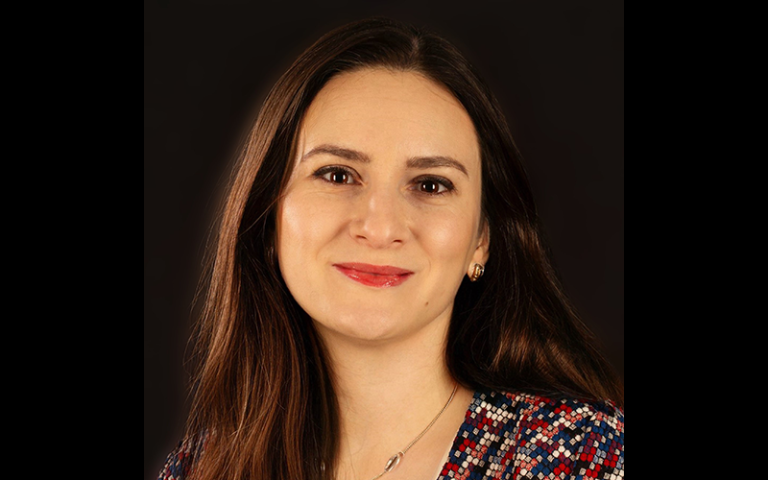Dr Viorica Chelban specialises in translational work in neurodegeneration and rare diseases and is a clinical academic at the UCL Queen Square Institute of Neurology.

What attracted you to the area of rare neurological conditions?
I've always been drawn to the area of rare neurological conditions because of my inherent curiosity to solve mysteries, much like a detective unravels a case. Plus, let's be honest, who doesn't love a good brain teaser?
I'm passionate about using novel technologies and collaborating internationally to find answers for those with overlooked conditions, believing that every person deserves access to proper care and understanding regardless of the rarity of their condition.
You research conditions known as atypical Parkinsonism – can you explain what these are and what your research investigates?
Imagine a group of brain disorders that mimic Parkinson's disease but come with their own unique challenges. That's atypical Parkinsonism. In my research, I'm diving deep into these conditions, trying to uncover what makes them tick and how we can fight back.
What's fascinating is how genetics are shaking up the game. We're discovering that certain genes can up the risk for atypical Parkinsonism, giving us clues on how to target treatments more precisely for each person. It's like unlocking personalised medicine for the brain, and it could change the game for hundreds of thousands affected by these conditions.
What are some of the challenges in researching rare neurodegenerative diseases?
The challenges in researching rare neurodegenerative diseases stem from their limited prevalence, which can make it difficult to gather enough data for comprehensive studies, along with the inherent complexity of these conditions that often requires specialised expertise and resources. Additionally, the lack of awareness and funding dedicated to these diseases can hinder research progress, highlighting the importance of collaboration, innovative approaches, and advocacy efforts to overcome these obstacles.
Are there any cases where novel diagnostic methods have reshaped patient stories, altering outcomes?
Absolutely! I've witnessed first-hand how cutting-edge diagnostic tools have transformed the lives of patients. Take, for instance, a recent case where a patient presented with symptoms that didn't fit neatly into any diagnostic category, confining him to a wheelchair and taking his eyesight.
It was clear that the condition was genetic. The patient was thoroughly investigated for the last 70 years with every genetic sequencing technology available at the time, without success.
However, thanks to advancements in genetic testing, whole genome sequencing and imaging technologies, we were able to identify the cause of his condition. This diagnosis allowed for targeted treatment, and as a result the patient started walking again, significantly improving the patient's prognosis and quality of life. The discovery in this one single patient allowed us to test, diagnose and treat patients around the world who all had the same DNA abnormality, making them wheelchair-bound and blind. It's incredible how these novel diagnostic methods are rewriting patient stories, offering hope and better outcomes where there once was uncertainty.
How do you perceive the role of international collaboration in shaping the future trajectory of rare disease research?
International collaboration is like adding rocket fuel to the engine of rare disease research. Picture this: scientists from different corners of the globe pooling their expertise, sharing data, and brainstorming ideas. It's a powerhouse of innovation! By working together, we can tackle rare diseases from all angles, uncovering new insights and speeding up the journey from lab bench to bedside. Plus, with more minds at the table, we're better equipped to navigate the complexities of these conditions and develop more effective treatments. Simply put, international collaboration isn't just important – it's essential for shaping the future of rare disease research and, ultimately, improving the lives of millions worldwide.
What’s the best advice you would give your younger self?
Looking back, if I could whisper a piece of advice to my younger self, it would be this: Embrace the journey, not just the destination. As a young scientist and neurologist, I was often fixated on reaching milestones and achieving goals. But now, I realise that every step of the way – every experiment, every setback, every aha moment – has its own value and teaches invaluable lessons. So, to my younger self, I'd say: Stay curious, stay resilient, and don't forget to savour the adventure along the way. After all, it's the twists and turns that make the ride worthwhile.
 Close
Close

